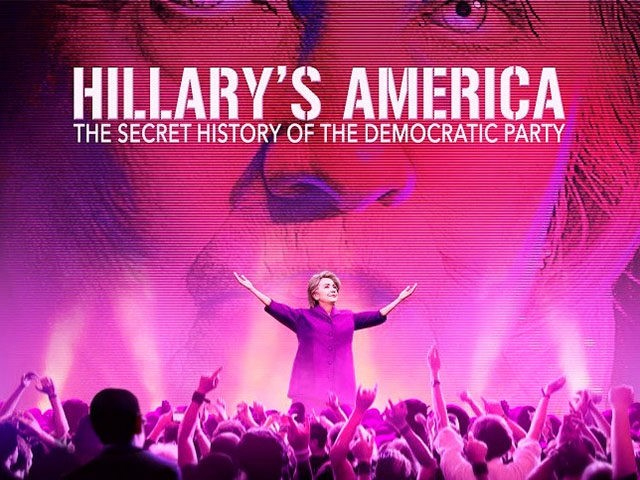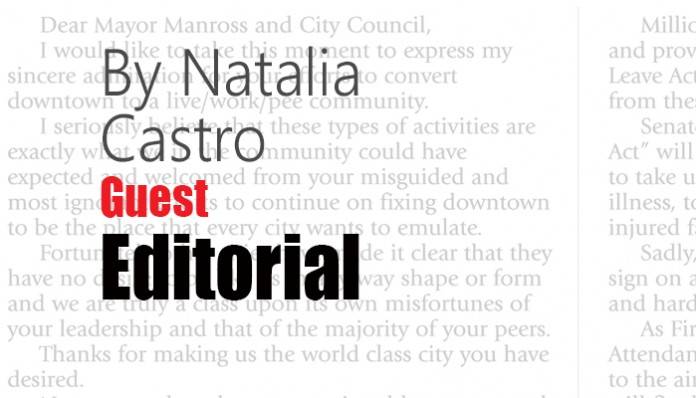At the Young America’s Foundation conference at George Washington University on July 28, Dinesh D’Souza explained to conservative students that control of a country revolves around control of three societal elements: academia, media and Hollywood. And in his 2016 documentary, “Hillary’s America: The Secret History of the Democratic Party,” D’Souza now offers compelling evidence Democrats have deceitfully gained control over all three.
 D’Souza spends the first hour or so of the movie explaining the roots of the Democratic Party, a history he claims has been systematically neglected by academia.
D’Souza spends the first hour or so of the movie explaining the roots of the Democratic Party, a history he claims has been systematically neglected by academia.
From slavery to segregation to socialism, Dinesh D’Souza nails history to Democrats.
D’Souza credited Andrew Jackson, a brutal slave owner, as being the party’s founder and establishing a desire for racial oppression, which continued into the Woodrow Wilson administration during his notably racist White House screening of “The Birth of a Nation.”
D’Souza effectively exposes Democrats’ plan to seize control over populations for wealth and power. The film chronicles the roots of Jim Crow, segregation, and the Ku Klux Klan to be integral to the rise of democrats as they were all started by democrats, in this D’Souza effectively highlights the Democrats’ historic position as the oppressor rather than the Republican Party as is taught today.
D’Souza follows the liberal rhetoric of social engineering into the modern party. From Lyndon B. Johnson through the Obama administration, the Democrats have generated an “Urban Plantation” to continually suppress minorities. By generating New Deal policies and continually extending welfare benefits, liberals have created a situation in which through dependency building, Democrats have actually stifled minority success, yet blamed the Republicans as being ignorant of minority needs.
But Democratic control over the media has allowed them to paint themselves as the altruistic party of assisting the less fortunate. A recent example comes by way of Hillary Clinton and the Clinton Foundation. Rather than shedding light onto the money laundering of the Clinton Foundation at the despair of third world countries such as Haiti, a system of political favors kept the money schemes out of the public eye. D’Souza highlights the Clintons and their corruption, while exposing the media of their neglect.
Early in the film D’Souza explains the 8 months he spent in a prison environment following the release of “2016: Obama’s America,” a film critiquing what would become of Obama’s second term. D’Souza notes that for the way in which he committed his crime of campaign finance fraud, he was the first person to ever serve prison time.
D’Souza went against the typical liberal environment which Hollywood promotes, and was consequentially jailed for it. Rather than backing down to the political and Hollywood elite, D’Souza continued with this film using his imprisonment as yet another example of Democratic control.
As for Hollywood, perhaps a good example of liberal control comes not from the film itself, but the reaction to the film. Rotten Tomatoes’ average of movie critics gave the film a 4 percent rating. Something even D’Souza claims he is not shocked by, as he has often struggled to find his place in liberal Hollywood.
But a raw score from viewers rather than critics, the film scores 80 percent audience approval on Rotten Tomatoes. The people have voted and D’Souza passes.
D’Souza does not need to spend a majority of the film on Clinton, after hammering through the Democratic Party’s history the connection to the Clinton’s power hungry corruption seemingly makes itself. Nonetheless, D’Souza shows the extent to which Clinton will not only maintain this Democratic control over important institutions, but the impossibility for Republicans to ever return to power if the situation is not reversed. It ends with a simple message — vote — something one can be certain the movie will engender a desire to do.
Natalia Castro is a contributing editor at Americans for Limited Government.





